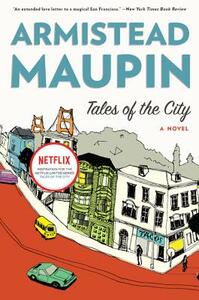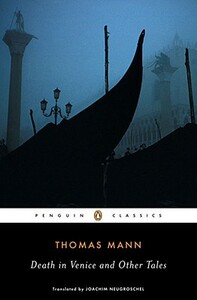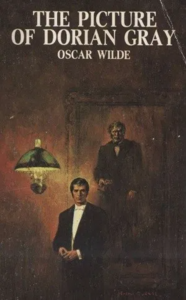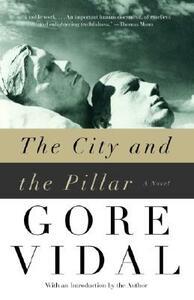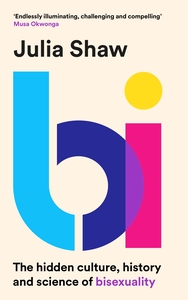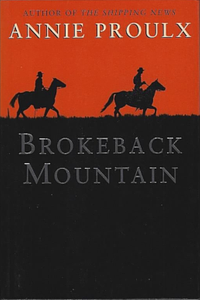You need to sign in or sign up before continuing.
Take a photo of a barcode or cover
davidaguilarrodriguez's Reviews (186)
emotional
funny
fast-paced
Plot or Character Driven:
Character
Strong character development:
Yes
Loveable characters:
No
Diverse cast of characters:
Yes
Flaws of characters a main focus:
Yes
On a scene by scene basis this was fine, but as a whole it was basically a cross between Melrose Place and Will and Grace and while I can see why it became a successful tv show, it was hard to get through as a book. Very scattered, didn’t feel like it built to much, very episodic, classic 70s white yuppie gays with little other representation, but for the 70s I guess that was still progress. I wanted to like this more, but it was fairly dull.
challenging
dark
mysterious
reflective
medium-paced
Plot or Character Driven:
Character
Strong character development:
Complicated
Loveable characters:
No
Diverse cast of characters:
No
Flaws of characters a main focus:
Yes
I found this book deeply unpleasant — and strangely entrancing.
Listening to the audiobook left me queasy at times, but also captivated. I actually paused it halfway through and ordered a physical copy from the library because I had the sense that I needed to read the book, not just hear it. The prose is lyrical, ornate, and occasionally teetering on overwrought — but beautifully so. It’s a book obsessed with beauty, so of course Thomas Mann was like "let me cook."
The central subject matter, however — an aging writer developing an obsessive fixation on a teenage boy — is less tragic than it is repulsive. Mann tries to wrap it all in Greco-Roman allusions and aesthetic theory, but that’s the oldest trick in the pedophile-artist book (see also: Lolita, André Gide, etc). I don’t care how many Greek statues you name — it’s still a creepy old man ogling a child. And honestly, I'm just out on that whole genre.
That said, what does work is the atmosphere of rot. The cholera outbreak never quite feels real, but that’s precisely the point — it plays like an externalization of Gustav’s internal collapse. The book captures that uncanny descent into unreality, where the world starts to reflect the mind’s disintegration. The image that came to mind was Munch's The Scream. The blurred figures, the warped setting, the horror leaking out of a soul stretched to the edge.
The ending doesn’t excuse the disturbing elements, but it reframes them. It turns revulsion into revelation — showing us not a noble artist destroyed by passion, but a man hollowed out by his own delusions, crumbling into myth.
I didn’t love this book. I’m not even sure I liked it. But I’m still thinking about it, and that has to count for something. And at least I didn't hate it as much as I hated Lolita.
dark
mysterious
fast-paced
Plot or Character Driven:
Character
Strong character development:
Yes
Loveable characters:
No
Diverse cast of characters:
No
Flaws of characters a main focus:
Yes
The opening scene between Basil, Lord Henry, and Dorian (the 3 male leads) was maybe the gayest thing I've ever read, and I've read explicit gay porn. Sublime.
The writing is, of course, dazzling. Wilde’s wit glitters on every page, but it’s the darker undercurrents that linger. He famously said of this book: “The Picture of Dorian Gray contains much of me in it –Basil Hallward is what I think I am; Lord Henry, what the world thinks me; Dorian is what I would like to be—in other ages, perhaps.”
It's hard not to read every delicious and devilish word Lord Henry says, knowing it comes from the pen that gave us The Importance of Being Earnest, and think that only Wilde could have written it. So yes, I can see why the world thought of him as Lord Henry. But that triptych of identity is the real portrait here: the artist, the cynic, and the gorgeous void where a soul should be.
Hedonism, aestheticism, horror, homoeroticism, the Faust legend, Shakespearean allusions, Huysmans decadence—it’s all packed into a book that’s far leaner than its cultural footprint would suggest. Wilde debates himself on every page, lets every idea run wild, then lets those ideas damn their characters. The result is a campy queer masterpiece.
Just as Dorian's soul is in the painting, Wilde's soul is in this book. That’s what makes Dorian Gray so enduring - it's a portrait of the artist as a seemingly untouchable cultural force about to be brought down by his inner demons and society's rot.
The writing is, of course, dazzling. Wilde’s wit glitters on every page, but it’s the darker undercurrents that linger. He famously said of this book: “The Picture of Dorian Gray contains much of me in it –Basil Hallward is what I think I am; Lord Henry, what the world thinks me; Dorian is what I would like to be—in other ages, perhaps.”
It's hard not to read every delicious and devilish word Lord Henry says, knowing it comes from the pen that gave us The Importance of Being Earnest, and think that only Wilde could have written it. So yes, I can see why the world thought of him as Lord Henry. But that triptych of identity is the real portrait here: the artist, the cynic, and the gorgeous void where a soul should be.
Hedonism, aestheticism, horror, homoeroticism, the Faust legend, Shakespearean allusions, Huysmans decadence—it’s all packed into a book that’s far leaner than its cultural footprint would suggest. Wilde debates himself on every page, lets every idea run wild, then lets those ideas damn their characters. The result is a campy queer masterpiece.
Just as Dorian's soul is in the painting, Wilde's soul is in this book. That’s what makes Dorian Gray so enduring - it's a portrait of the artist as a seemingly untouchable cultural force about to be brought down by his inner demons and society's rot.
emotional
sad
slow-paced
Plot or Character Driven:
Character
Strong character development:
Complicated
Loveable characters:
No
Diverse cast of characters:
Complicated
Flaws of characters a main focus:
Complicated
This was… fine. I can only ever engage so much with stiff upper lip British propriety. I really didn’t like Maurice as a character. He was one of those classic British men who bristles at everything happening around him but doesn’t really do anything. I guess he went to the doctor a couple times… he was so boring. I wanted to connect more with this, but it was just kinda meh.
adventurous
emotional
reflective
tense
fast-paced
Plot or Character Driven:
A mix
Strong character development:
Yes
Loveable characters:
Yes
Diverse cast of characters:
Yes
Flaws of characters a main focus:
Yes
This was a really fun, propulsive read that touched on colonial politics in a way that never felt pedantic and was always engaging on a plot and character level
dark
emotional
sad
fast-paced
Plot or Character Driven:
Character
Strong character development:
Yes
Loveable characters:
Complicated
Diverse cast of characters:
Complicated
Flaws of characters a main focus:
Yes
A tough, clear-eyed, and surprisingly timeless novel.
This isn’t just a “gay story”—it’s a powerful story about trying to reclaim a beautiful, lost moment and never quite being able to. Set `just before, during, and immediately after WWII, it captures how isolating and confusing it was to come of age as a gay man at a time when queer desire was everywhere but almost never spoken aloud.
The writing is clean, lean, and emotionally sharp. Vidal doesn’t sentimentalize, and some modern readers might bristle at what feels like negativity or internalized homophobia—but to me, that’s part of what makes it important. It’s a snapshot of the era: what people believed, what they feared, and what they longed for. That it was published in 1948 at all—with servicemen quietly trying to figure out if the other “played for the same team”—is remarkable.
What really lingers, though, is the emotional arc: the longing to reclaim an idealized version of yourself and the person you once loved. It’s about queerness, yes—but it’s also about time, memory, and the ache of lost innocence. That makes it resonate far beyond its era.
challenging
reflective
medium-paced
Plot or Character Driven:
Character
Strong character development:
Yes
Loveable characters:
Complicated
Diverse cast of characters:
No
Flaws of characters a main focus:
Yes
Beautifully written, brutally honest, always compelling.
The prose in this is so lyrical and immersive that I wanted to stay inside the writing even when the characters were doing things that were upsetting.
The structure is loose and fragmented, but it works. It feels like memory—capturing key moments, scenes, and shifts in identity more than a clean narrative.
What is most striking is the emotional honesty. White doesn’t shy away from the darker sides of desire or from his own mistakes. It’s raw, uncomfortable at times, but most importantly deeply human.
What is most striking is the emotional honesty. White doesn’t shy away from the darker sides of desire or from his own mistakes. It’s raw, uncomfortable at times, but most importantly deeply human.
A powerful look at growing up gay in 1950s America. Not easy, but unforgettable.
informative
lighthearted
fast-paced
Informative breakdown of bisexuality, its history, culture, and what it looks like today
informative
slow-paced
informative, but a bit too focused on the Dreyfus affair (which was interesting and illuminating of the time, but I felt just could have been shorter and we could have gotten more of the lead up to WWI).
emotional
sad
medium-paced
Plot or Character Driven:
Character
Strong character development:
Yes
Loveable characters:
Yes
Diverse cast of characters:
Complicated
Flaws of characters a main focus:
Complicated
Excellent, moving short story. The movie really did a great job capturing it and building on it. Annie Proulx, great writer. Ang Lee, great filmmaker.
